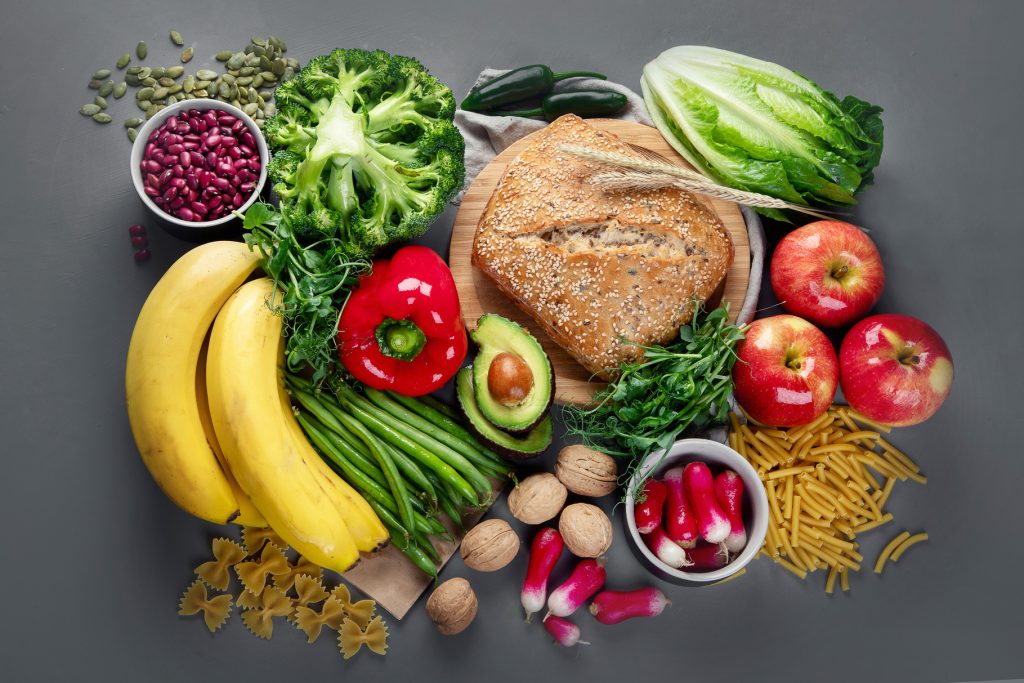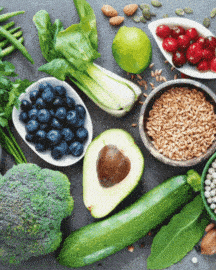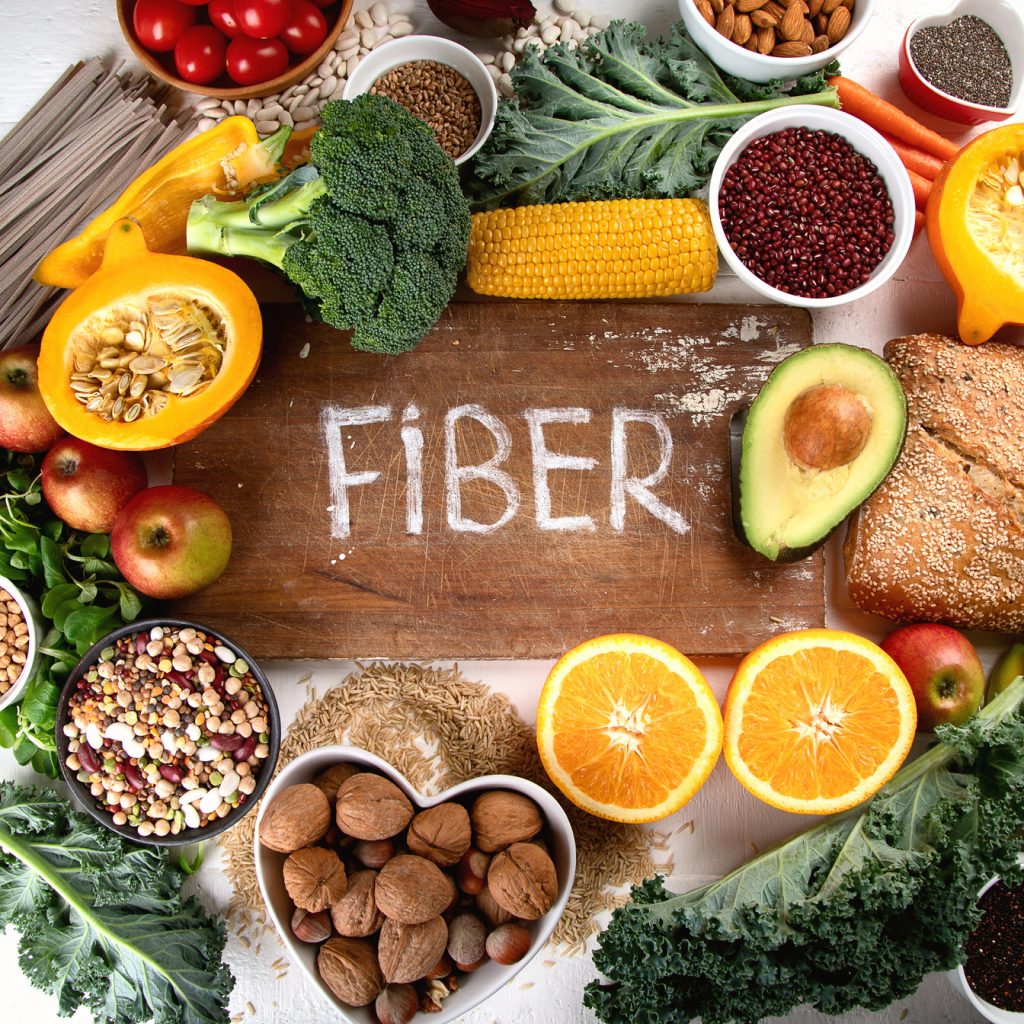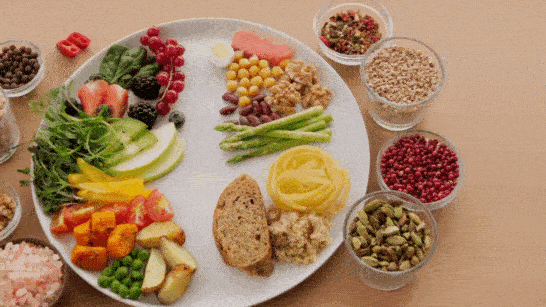
The Fiber Factor
Why this Super Nutrient Should
be on your Plate!
- Written by Lynae, Owner of Healthy Living with Lynae, NNCP, CHN, CHC
Does FIBER deserve all the hype that it is getting?
There is no denying the health benefits that come from having a diet rich in fiber. However, despite the incredible benefits, most individuals fall short of the daily recommendation. In this article, I will explain fiber, the benefits of fiber, what foods provide the most fiber, and daily recommendations. By the end of this article, you will be reaching for more fiber, and understand that a diet containing adequate fiber is essential for overall health and well-being!

WHAT is FIBER?
Fiber is a type of carbohydrate found in plant-based foods that your body cannot digest. Although, that may not sound good; it has huge benefits! Unlike other carbohydrates that are broken down into sugar molecules, fiber passes through the digestive tract relatively intact. Fiber is categorized into two main types and each type has distinct characteristics and health benefits.

- Soluble fiber dissolves in water, forming a gel-like substance in the digestive tract and aids in lowering blood cholesterol and glucose levels, etc. Common sources include: Oats, barley, legumes, fruits, vegetables, psyllium (a common fiber supplement).
- Insoluble fiber does not dissolve in water and adds bulk to the stool, helping to promote bowel regularity. Common sources include: whole grains nuts, seeds, vegetables, wheat bran, etc
Functional fiber is also worth a mention! Unlike soluble and insoluble fiber that occur naturally in foods, functional fiber is a specific type of dietary fiber that has been isolated or extracted from their natural sources and added to foods and supplements for their health benefit.

Foods Rich in Fiber
Legumes: Lentils, chickpeas, black beans, kidney beans, split peas.
Whole Grains: Oats, quinoa, barley, brown rice, whole wheat products, popcorn.
Fruits: Raspberries, strawberries, blackberries, pears and apples (with skin), bananas, oranges, avocado, passion fruit. PASSION FRUIT, has the highest fiber content with 24 grams per one cup!
Vegetables: Broccoli, brussels sprouts, carrots, sweet potatoes (with skin), green leafy vegetables, artichokes.
Nuts and Seeds: Chia seeds, flaxseeds, almonds, pecans, walnuts.
TIPS: Increase your intake slowly in order not to upset your stomach, hydrate when increasing your fiber, read food labels and choose foods with higher fiber content, search for recipes high in fiber, and track your fiber intake through mobile apps.

So how much is enough? Health Canada recommends that men should aim for 38 grams of fiber per day and women should aim for 25 grams, in order to maintain good health and prevent relates illnesses.
It is reported, that most are consuming less that half the recommended amount! Are you getting enough?
Fiber is an essential component of a healthy diet and offers numerous benefits. Key ways in which fiber is good for you:
- Digestive Health: Fiber aids in digestion by adding bulk to the stool, which helps prevent constipation and promotes regular bowel movements.
- Increased Satiety: High-fiber foods are often more filling than low-fiber foods, which can help you feel satisfied and reduce overall calorie intake.
- Blood Sugar Control: Soluble fiber can slow the absorption of sugar, helping to improve blood sugar levels. This is particularly beneficial for individuals with diabetes or those at risk of developing diabetes.
- Heart Health: High-fiber diets have been linked to lower cholesterol levels and reduced risk of heart disease. Soluble fiber can help lower LDL cholesterol levels and improve overall heart health.
- Gut Health: Fiber acts as a prebiotic, providing nourishment for beneficial gut bacteria. A healthy gut microbiome is essential for overall health and can boost the immune system.
- Cancer Prevention: Some studies suggest that a high-fiber diet may lower the risk of certain types of cancer, particularly colorectal cancer.
- Lower Risk of Stroke: Some research indicates that individuals who consume a fiber-rich diet may have a reduced risk of stroke and other cardiovascular issues.

Healthy Living
with Lynae
Natural Nutrition Clinical Practitioner (NNCP), Certified Holistic Nutritionist (CHN),
Certified Nutritional Counsellor (CHC)
Cell: 778.822.09920
www.healthylivingwithlynae.com




